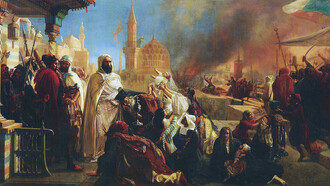Dreams, goals, objectives, ideals, and projects all share a common purpose: to prepare the way for the conduction of energy. There are different levels of energy depending on their intensities and the forms of matter with which they interact. In humans, the energy that drives ideals, goals, and projects has different intensities. The potency of energy can be measured by the results, by what it can move into action or achieve goals. Humans use energy according to their objectives. Therefore, the use of energy is directly proportional to the objectives. Generally, in the face of adversity, we invoke strength, more energy, and more power, but without increasing our objectives; hence, the energy never arrives.
This brings us to the following question: what comes first, the objectives or the energy? Many would say that energy comes first because everything moves with energy. This idea can be reinforced with another: first comes energy, then matter. It is generally known that energy moves matter. Following this logic, it could be said that energy comes first, and then, according to the energy, objectives arise. It can also be added that first comes our real possibilities, then objectives in proportion to our real possibilities. By this reasoning, many set objectives in proportion to their real possibilities. There is a very common phrase that says, "We must be realistic." Modernity works this way, and that is precisely the great problem, the mistake, the error, and the mother of all failures. The falsity of this viewpoint is the cause of the decline of modernity. However, to realize this, a new paradigm is necessary because it can only be understood from a new perspective, from new foundations—in sum, only from the universal essence. All other views are diverse and contradictory.
There is a well-known phrase by Antonio Machado: "Traveler, your footsteps are the path, and nothing more; traveler, there is no path; the path is made by walking." This phrase is missing something—even if there is no path, there must be a direction, a sense, an ideal. The path is made as one moves forward; this path is for those who follow us if we guarantee the certainty of the path. The certainty of the path is determined by the certainty of the objectives and ideals. Now comes the interesting question: how do we provide certainty and truthfulness to objectives and ideals?
According to the universal essence, there is proportionality between energy and matter. This proportionality ensures balance. A stone is in balance and can remain in that balance; however, to maintain its balance, a plant needs to keep a constant energy intake. In short, all living beings maintain their balance through nourishment. Now comes the case of humans, who are more than plants and animals. What makes humans superior in a natural sense? Of course, if we look at the unnatural sense of modern humans, what should precisely make them superior makes them inferior; the forces that should elevate them instead sink them. This is because modern humans have inverted the sense of their lives. This is evidence of their decadence, their aging, and their error in life.
Animals and plants sustain life through metabolism while following the laws of nature. Humans also sustain life through metabolism, but they follow their ideas, beliefs, theories, and worldviews, many of which are erroneous. Nothing good—well-being, fulfillment, wisdom, wholeness, or human development—can come from falsehood. The spirit is a unique dimension of the human being, but education does not cultivate it. Therefore, we experience social imbalance and a mind-universe imbalance. In this situation, the forces of the universe move against our desires and goals, and as a result, very few achieve their dreams.
Living beings on Earth maintain their balance through nourishment. Humans, to maintain their balance, must grow mentally through energy, called knowledge. Therefore, the ultimate balance in humans is universal wisdom. The pursuit of truth has wisdom as its goal, and wisdom provides us with a state of universal balance. Considering universal wisdom, all objectives, ideals, and dreams have certainty and validity if they relate to or connect with universal wisdom. Universal wisdom has an ontological foundation. This is neither a theory, an approach, nor a viewpoint. That humans do not follow it or show no interest in it is their problem or that of the majority. But if we analyze from the universal essence, from the universal balance of all beings, humans are destined to achieve the balance of universal wisdom.
Now we can answer many questions: what comes first, energy or matter? What comes first, energy or the ideal? If it is about matter, the path comes first. If it is about energy, the ideal comes first. The ideal is the path for energy. Let us see it this way: to channel water, we first need to prepare the conduction channels. Similarly, to channel energy, we must first establish the sense, the direction, and the objective. The higher the ideal, the greater the power of the required energy. The energy consumed by the spirit is found in universal values, which are sustained by a universal truth. The universal truth is the representation of the universal essence within the human mind. Thus, energy comes from the universe, nourishes the soul, and becomes an activating force to achieve the universal goal of wisdom. Therefore, the ontological foundation of universal wisdom is the universal essence, and the epistemological foundation of universal wisdom is universal truth.
Every human being who longs to live must cultivate ideals. An education for life must sow ideals in children, youths, and adults. Human life, guided by ideals, leads to planetary conservation.















